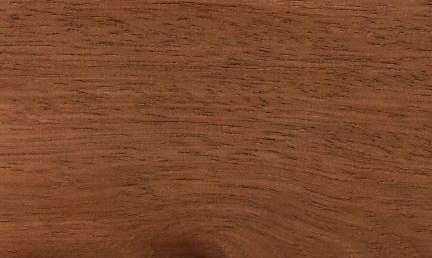
Red meranti (Shorea acuminata)
Family: Dipterocarpaceae
Common names: Meranti rambai daun, Red meranti
Distributed in: Malaysia (Oceania and S.E. Asia)
Distribution overview: This genus is widely distributed, starting from Sri Lanka and India on the west and throughout Burma and other countries of Southeast Asia, up to the Philippines on the east. The greatest concentration of Shorea species occurs in Borneo, Sumatra, and the Malay Peninsula. Shorea acuminata is one of eighteen species representing several relatively distinct but related botanical groups of Shorea in Malaysia, which are collectively called Red Meranti.They usually grow at low altitudes and prefer well-drained soils.
Common uses: Beams, Building construction, Building materials, Construction, Door, Flooring, Framing, Furniture , Joists, Organ pipes, Packing cases, Rafters, Windows
Product sources: Meranti is the principal source of general utility timbers used in Malaysia. Local consumption of the timber exceeds all others in the country, and it is regarded as one of the most important Malaysian species. It is also one of the principal export timbers.
Environment profile: Vulnerable
Tree size: Trunk diameter is 100-150 cm
Colors: the heart isWhite lines formed by intercellular canals , Yellowand the sapwoodYellow, Yellow-Brown, gray-brown or yellow-pink, often with a distinct purple cast .The grain isNarrow striped figure on quarter sawn surfaces , the textureUniformand the lusterMedium
Natural durability: Perishable, Some natural resistance to decay in contact with or above ground
Odor: No distinct odor or taste
Silica Content: High
Kiln Schedules: T6-D4 (4/4)
Drying Defects: Distortion, Thinner material may distort slightly, but this can be prevented through proper precautions
Ease of Drying: Stock in thinner dimensions should be closely stickered and weighted to prevent degrade
Blunting Effect: Slight dulling effect on cutting tools
Boring: Fairly difficult to very difficult
Carving: Poor to Very Poor Results
Cutting Resistance: Saws without difficulty
Gluing: Good gluing properties
Mortising: Fairly Difficult to Very Difficult
Moulding: Poor to Very Poor
Movement in Service: Poor to Very Poor
Nailing: Poor to Very Poor , Pre-Boring Recommended
Planing: Responds well to ordinary tools in mortising
Resistance to Impregnation: Resistant sapwood
Response to hand tools: The operation requires sharp cutting edges for best results
Routing recessing: Fairly Difficult to Very Difficult
Sanding: Fairly Easy to Very Easy
Veneering qualities: Highly figured and attractive veneers , Rotary cut to produce plywood and sliced into veneers for decorative applications
Steam bending: Wood buckles severely
Screwing: Fairly Easy to Very Easy, Good screwing properties; Turning: Poor to Very Poor Results
Polishing: Very Good to Excellent; Staining: Very Good to Excellent; Varnishing: Surface Preparation
;
- Numerical data Metric
- Numerical data English
- Strength properties
- References
 |
 |
 |
 |
| Item |
Green |
Dry |
Metric |
| Specific Gravity |
0,45 |
|
|
| Density |
|
|
kg/m3 |
| Bending Strength |
542 |
830 |
kg/cm2 |
| Crushing Strength |
24 |
37 |
kg/cm2 |
| Hardness |
|
|
kg |
| Impact Strength |
60 |
|
cm |
| Shearing Strength |
|
|
kg/cm2 |
| Stiffness |
104 |
123 |
1000 kg/cm2 |
| Tangential Shrinkage |
9 |
|
% |
| Radial Shrinkage |
3 |
|
% |
| Weight |
|
721 |
kg/m3 |
| Maximum Load |
0,63 |
|
cm-kg/cm3 |
| Toughness |
|
|
cm-kg |
| Static Bending |
300 |
468 |
kg/cm2 |
|
 |  |  |  | | Item | Green | Dry | English | | Bending Strength | 7713 | 11813. | psi | | Crushing Strength | 343 | 532. | psi | | Impact Strength | 24 | | inches | | Maximum Crushing Strength | 3891 | 6236. | psi | | Static Bending | 4273 | 6662. | psi | | Stiffness | 1490 | 1761. | 1000 psi | | Work to Maximum Load | 9 | | inch-lbs/in3 | | Specific Gravity | 0.45 | | | | Weight | | 45 | lbs/ft3 | | Radial Shrinkage | 3 | | % | | Tangential Shrinkage | 9 | | % | | Volumetric Shrinkage | 13 | | % | |
Weight=High
Low resistance to shock loads
Crushing strength = medium
Bending strength (MOR) = medium
Chudnoff, M.,1984,Tropical Timbers of the World,U.S.A. Department of Agriculture, Forest Service, Forest Products,Laboratory, Madison.Desch, H. E. 1957. Manual of Malayan Timbers - Volume I. Malayan Forest Records, No. 15. Malaya Publishing House Ltd., Singapore.Desch, H. E. 1957. Manual of Malayan Timbers. Malayan Forest Records, 28(30):315-318. Malaya Publishing House Ltd., Singapore.Lincoln, W.A. 1986. World Woods in Color. Linden Publishing Co. Inc. Fresno, California.WCMC. 1992. Conservation Status Listing: Trees and Timbers of the World. World Conservation Monitoring Center (WCMC, Plants Program, 219 Huntingdon Road, Cambridge, CB3 ODL, United Kingdom.
| 







